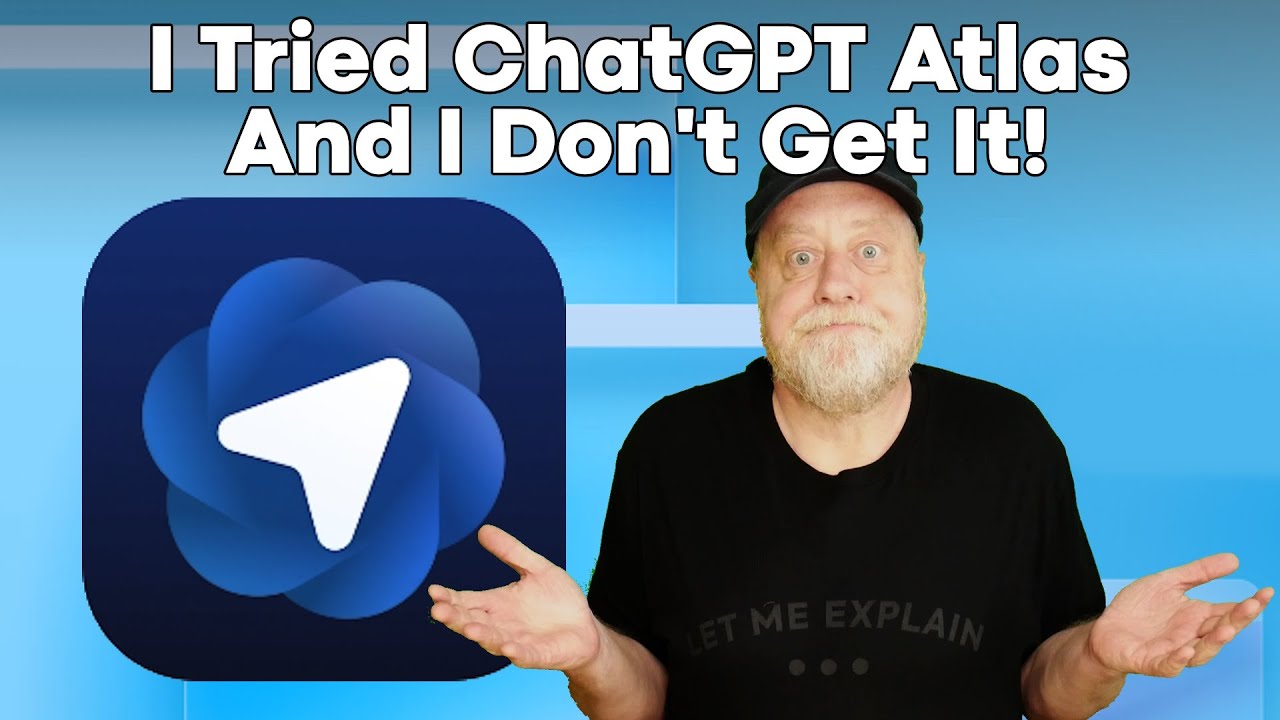OpenAI’s new ChatGPT-powered Atlas browser for Mac integrates AI directly into the browsing experience, offering features like web page summarization and an “agent mode” for automating tasks, but these capabilities are seen as non-revolutionary and sometimes less efficient than manual methods. While the concept is intriguing, the creator finds Atlas more of a novelty than a necessity, questioning its practical value and whether it justifies switching from established browsers.
In this video, the creator discusses OpenAI’s new web browser called Atlas, which integrates ChatGPT directly into the browsing experience. Currently available only for Mac, Atlas replaces the traditional search engine homepage with ChatGPT, allowing users to interact with the AI right from the start. The browser is well-integrated with the Mac environment, importing passwords and usernames from other browsers, and supports browsing websites normally by typing URLs. The key difference is that instead of opening a search engine, users are greeted with ChatGPT, which can answer questions and provide search results, images, and videos through clickable icons.
The creator expresses some confusion and skepticism about the purpose and usefulness of Atlas. While it offers features like summarizing web pages, rewriting content, and checking spelling differences between British and American English, these capabilities are not new and can already be achieved using existing large language models and browser extensions. The integration is nice but not revolutionary, and the creator questions whether embedding ChatGPT into a browser was a necessary step or just something done because it was possible.
One notable feature of Atlas is the “agent mode,” which allows the AI to control the browser and perform tasks such as creating email accounts, writing emails, or ordering food online. While this automation is impressive, the creator points out potential downsides, including the risk of misuse by spammers and privacy concerns related to sharing personal information like credit card details. Additionally, the creator finds that using agent mode can sometimes be more time-consuming than simply performing tasks manually, as it often requires repeated prompting and fine-tuning.
The browser is based on Chromium, meaning it supports Chrome extensions and can be set up with saved passwords and email information, making it a fully functional browser. However, the creator feels that the main selling point—starting with ChatGPT instead of a search engine—is not compelling enough to switch from established browsers like Chrome or Firefox. They argue that while OpenAI may have economic motivations to attract users to their platform, the current implementation of Atlas does not offer a significant advantage or a strong reason to change browsing habits.
In conclusion, the creator appreciates the concept and acknowledges that the technology may improve over time, but as of now, Atlas feels more like a novelty than a necessity. They encourage Mac users to try it out and look forward to seeing how it evolves when versions for Windows and Linux are released. Ultimately, the creator invites viewers to share their thoughts and experiences, emphasizing that while the integration of AI into browsers is interesting, it has yet to prove its practical value in everyday use.
